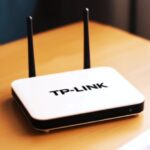In the world of modern agriculture, soil is no longer just soil — it’s a rich source of data and insights! To truly understand it, we need smart tools that can translate its silence into clear, actionable decisions… and that’s where soil sensors come in.

Here are the most important types of sensors used in smart farming: 1. Soil Moisture Sensor

Accurately measures the water level in the soil, answering the key question: Is it time to irrigate, or is the soil still moist enough? 2. Soil Temperature Sensor

Monitors soil temperature to ensure optimal conditions for seed germination and root development. 3. Salinity Sensor (EC)

Detects salt levels in the soil and alerts you before they negatively affect your crops. 4. pH Sensor

Measures whether the soil is acidic or alkaline, helping you choose the right crops for the right soil. 5. NPK Nutrient Sensor

Evaluates nitrogen, phosphorus, and potassium levels to assess soil fertility and determine fertilization needs.

Why do you need these sensors?

Reduce water and fertilizer waste

Improve crop quality and yield

Make accurate, data-driven decisions

Monitor your land remotely, from anywhere in the world

Invest smartly in your land… and your time! And the best part… Digital Basla provides all these solutions — and more — within an integrated smart control system that covers: agriculture, water, energy, buildings, storage, cameras, pumps, valves, and much more. A complete smart ecosystem — at your fingertips!
Contact us : 0915579536
Or on the website digitalonion.ly
Visit us at our company address: Tripoli – Andalus Street – Next to the Iraqi Embassy.







Leave a Reply